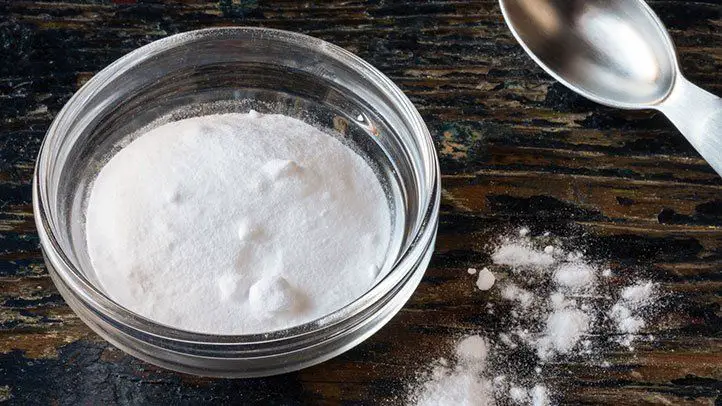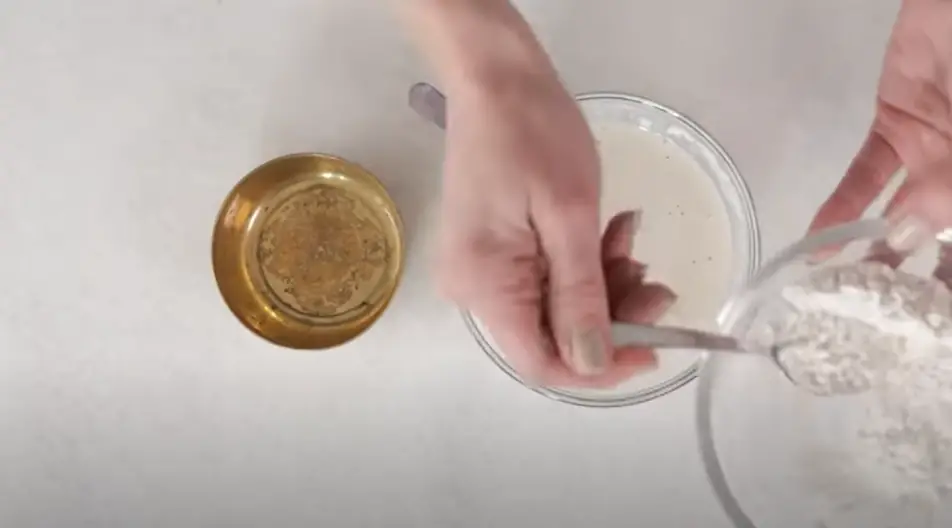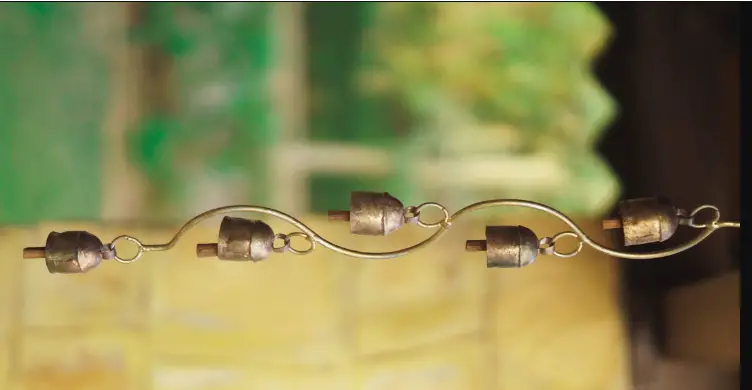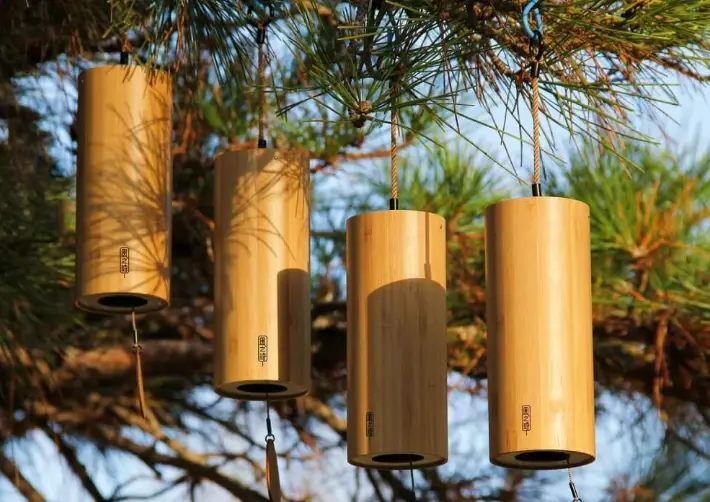If you have brass wind chimes, then you know that they need to be cleaned on a regular basis. Brass is a beautiful material, but it can tarnish over time. In this article, we will answer some common questions about cleaning brass wind chimes. We will also review some of the best products for cleaning brass, and we will give you some useful tips on how to get the job done effectively.
Table of Contents
The basic materials you’ll need
Here is a list of materials you’ll need in order to clean your brass wind chimes:
- White vinegar
- Water
- Baking soda
- Soft cloths or brushes [1]

To start, mix equal parts water and vinegar in a bowl. Dip a soft cloth or brush into the mixture and then use it to scrub the surface of your brass wind chimes. If you have any areas that are particularly tarnished, you can apply a little baking soda to those areas before scrubbing. Once you’ve scrubbed the entire surface of your brass wind chimes, rinse them off with clean water and dry them with a soft cloth. That’s all there is to it! With just a little bit of effort, you can keep your brasswind chimes looking beautiful for years to come.
Additional Tips:
- If your brass wind chimes are very dirty, you may need to soak them in the vinegar mixture for a few hours before scrubbing.
- To avoid damaging your brass wind chimes, be sure to use only soft cloths or brushes. Avoid using abrasive materials like steel wool or sandpaper.
- For best results, clean your brass wind chimes on a regular basis. A monthly cleaning should be sufficient for most people. [2]
Cleaning your brass wind chime
It’s essential to clean your brass wind chime regularly if you want it to retain both its beautiful appearance and great sound. Here are some common questions people have about cleaning brass wind chimes, product reviews, and useful tips.
You should clean your brass wind chime at least once a year. If you live in a particularly humid or salty environment, you may need to clean it more often.
There are many commercial cleaners available specifically for cleaning brass. A solution of mild soap and water can also be used. After using any chemical except plain water to clean the chime, make sure to rinse it well.

You can polish your brass wind chime. You can use a commercial brass polish or a homemade mixture of vinegar and salt. Make sure you rinse the wind chime after you finish polishing it.
A soft cloth can help you clean your brass wind chime. Only use products that are gentle and non-abrasive. [3]
Protect and lubricate your brass wind chime
After you’ve cleaned your brass wind chime, it’s important to protect and lubricate it to prevent further tarnishing. You can do this by spraying a clear lacquer or polymer sealant on the surface of the brass. By doing this, you will establish a shield between the metal and air which will decelerate the rusting process.
It’s also a good idea to lubricate any moving parts on your wind chime, such as the hooks that hold the tubes in place. This will help to prevent corrosion and keep your chime sounding its best.
There are several supplies on the market that are designed specifically for brass protection and maintenance, so double-check the labels before buying one.
When you’re ready to enjoy your clean and beautiful brass wind chime, simply hang it up in a location where it will catch the breeze. Then sit back and relax to the peaceful sound of gently clinking metal. With a little bit of care, your brass wind chime will provide years of enjoyment. [4]
FAQ
How do you clean a metal wind chime?
The most straightforward approach to clean a metal wind chime is to use a damp cloth. If your wind chime is looking a little worse for wear, give it a clean with some mild soap and water. Make sure to fully wash the chime after using it to remove any soap residue. You can also use a commercial metal polish if desired.
For more stubborn dirt or tarnish, you may need to resort to some elbow grease and scrub the chime with a soft brush or cloth. Again, be sure to rinse thoroughly when finished.
If your wind chime has wooden elements, you will need to take extra care not to damage the wood finish. If at all possible, avoid getting the wood wet. If necessary, however, use a mild soap and water solution only. You can also use a wood polish or wax to protect the finish.
Finally, be sure to clean your wind chime regularly to prevent dirt and grime from building up. A quick wipe down once a week should do the trick!
How do you clean copper chimes?
In order to clean your copper chimes, mix a mild soap with water. A combination of vinegar and water may be used to remove tough dirt or stains. Dampen a microfiber cloth with the mixture and wipe down your chimes. Rinse the chimes off with clean water when you’re finished.
If your chimes are particularly dirty, you may need to use a brass polish. Be sure to read the directions on the polish before using it on your chimes. Apply the polish to a soft cloth and then rub it onto the surface of the metal. Wipe away any excess polish with a clean cloth.
When cleaning brass, be careful not to utilize harsh chemicals or abrasive materials. These can damage the finish on your chimes. If you’re not sure what cleaning products to use, you can always contact a professional for help.
Is brass good for wind chimes?
Yes, brass is an excellent material for wind chimes because it is durable and has a nice, natural patina that develops over time. Brass is also relatively easy to clean and maintain.
To clean your brass wind chimes, you will need:
- A soft cloth or brush
- Mild soap or detergent (optional)
- Water
- Vinegar or lemon juice (for tarnished brass)
- Baking soda (for stubborn stains)
First, gently dust or wipe down your brass wind chimes with a soft cloth to remove any surface dirt or debris. If your chimes are particularly dirty, you can mix a mild soap or detergent with water and use this solution to wipe them down.
Next, rinse your chimes with clean water and dry them thoroughly with a soft cloth. If your chimes are tarnished, you can use vinegar or lemon juice to help remove the tarnish. Simply apply the vinegar or lemon juice to a soft cloth and rub it onto the surface of the brass. After a couple of minutes have passed, rinse the solution off with water.

For stubborn stains, you can make a paste out of baking soda and water and use this to scrub the stain. Once you have removed the stain, be sure to rinse the area well and dry it completely.
How do you clean badly tarnished brass?
The best way to clean badly tarnished brass is to use a commercial brass cleaner. You can find these cleaners at most hardware stores. After you clean the piece with the cleaner, follow the directions carefully. Some cleaners require that you rinse the commodity off with water afterwards. You may need to repeat the cleaning process several times if your Wind Chime is very dirty.
To maintain the shine of your chime, you should polish it with a soft cloth. You can also coat its surface by applying beeswax or furniture polish to protect against future tarnishing, both will provide an elegant look that’s sure not easily found in any store.
If you don’t have a commercial brass cleaner, you can make a simple cleaning solution at home. Combine equal parts vinegar and water in a bowl. Use a soft cloth to apply the mixture to your Wind Chime, then rinse it off with clean water. You will likely have to repeatedly go over the same area to completely clean it.
Once your Wind Chime is clean, you can polish it with a soft cloth to restore its shine. You can also apply a coat of beeswax or furniture polish to help protect the brass from future tarnishing.
What is the best homemade brass cleaner?
There are a few recipes for homemade brass cleaner that you can find online. However, we recommend using a commercial brass cleaner like Brasso or Wright’s Brass Polish. These products are specifically designed to clean and polish brass, and they’re very easy to use.
To clean your brass wind chimes with Brasso or Wright’s Brass Polish, simply follow the instructions on the product label. In most cases, you’ll just need to apply the polish to a soft cloth and then rub it onto the surface of the brass. Once you’ve polished the entire surface, buff it with a clean cloth to remove any excess polish.
If your wind chimes are particularly dirty or tarnished, you may need to repeat this process several times. However, you should start to see a noticeable difference after just one or two applications.
Once you’ve cleaned your brass wind chimes, be sure to protect them from future tarnishing by storing them in a cool, dry place. You can also apply a thin layer of clear lacquer to the surface of the brass. This will help to prevent tarnishing and keep your wind chimes looking like new for longer.
Should you leave wind chimes out in the winter?
This is a common question, and unfortunately, there is no definitive answer. Some people recommend bringing them inside to prevent rusting and freezing, while others say that wind chimes can withstand any type of weather. The decision of what you are comfortable with is ultimately up to you. If you live in an area with harsh winters, it may be best to err on the side of caution and bring your wind chimes indoors.

Another factor to consider is the material of your wind chimes. If they are made of brass or another metal that is susceptible to rusting, you will want to take extra care to protect them from the elements. On the other hand, if your wind chimes are made of materials like aluminum or stainless steel, they will be much more resistant to the elements and can probably withstand being left out in the winter.
What are the tubes on wind chimes made of?
The tubes on wind chimes are most commonly made of aluminum. However, they can also be made of copper, steel, or even bamboo. The material that the tubes are made out of will affect the sound that the wind chime makes. Aluminum is the most common material because it is lightweight and produces a clear tone.
Copper is a more expensive option, but it creates a richer sound. Steel is the heaviest option and creates a deeper sound. Bamboo is an eco-friendly choice that has a mellow sound.
No matter what material your wind chime tubes are made out of, they will eventually need to be cleaned in order to keep them looking their best and sounding their best. If your brass wind chimes are in need of a cleaning, follow these tips.
What are types of wind chimes?
There are two types of wind chimes – those made with metal tubing and those made with solid rods. Metal tubing wind chimes have a more mellow sound, while solid rod chimes have a sharper, clearer tone.
Brass is one of the most popular materials for making wind chimes because it has a beautiful golden color and it is very durable. However, brass can tarnish over time if it is not properly cared for.
To keep your brass wind chime looking its best, it is important to clean it on a regular basis. In this guide, we will show you how to clean brass wind chimes using both natural and commercial cleaning products.
There are a few things you will need in order to clean your brass wind chime:
- A soft cloth
- A toothbrush or other small brush
- White vinegar or lemon juice
- Baking soda
- Water
- Commercial brass cleaner (optional)
Useful Video: How to Polish the Brass Tubes from a Vintage NuTone Door Chime
Conclusion
Cleaning brass wind chimes is not difficult, but it does require some time and effort. With the right products and a little elbow grease, you can keep them shining like new. With a little bit of care, your brass wind chimes will look like new and last for many years. We hope this guide has been helpful in teaching you how to clean brass wind chimes. If you have any further questions, please don’t hesitate to contact us. We’re always happy to help!
References
- https://www.ehow.com/how_7705155_clean-wind-chimes.html
- https://ezinearticles.com/?Tips-on-Caring-for-Wind-Chimes&id=9222212
- https://happygardens.com/blogs/news/how-to-clean-wind-chimes
- https://wd40.co.uk/tips-and-tricks/wind-chime-maintenance/






Leave a Reply